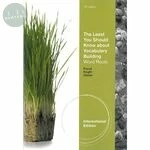
| 定價: | ||||
| 售價: | 6495元 | |||
| 庫存: | 已售完 | |||
| LINE US! | ||||
| 此書為本公司代理,目前已售完,有需要可以向line客服詢問進口動向 | ||||
| 付款方式: | 超商取貨付款 |

|
|
| 信用卡 |

|
||
| 線上轉帳 |

|
||
| 物流方式: | 超商取貨 | ||
| 宅配 | |||
| 門市自取 |
為您推薦

類似書籍推薦給您
【簡介】 What is our universe made of? How did it get here, and how will it end? Why are many scientists currently so excited about these questions? And why is everybody else so scared of the one subject – physics – that promises to give us all the answers? This book is here to help. Its main aim is to explain a remarkable new idea that has arisen in recent years, that tells us all of our current theories of nature are much more closely related than previously thought possible. It will tell you where these theories come from, why understanding them has traditionally been so difficult, and about the tantalising new hints that our understanding of nature is about to significantly change. More than this, the book will explain quite why it is so important that more people join the greatest pursuit of knowledge that our species has ever seen. Practical advice is given on how to become a scientist, so that people from all backgrounds may be inspired to become the leading thinkers of the future. 【目錄】

類似書籍推薦給您

類似書籍推薦給您

類似書籍推薦給您
Least You Should Know about Vocabulary Building:Word Roots 7/e 書號:0110204 ISBN:9780495916970 作者:Glazier/ Knight/ Friend 出版日期:2011年 內容簡介 In this revision for The Least You Should Know about Vocabulary Building: Word Roots,we replaced two roots,tri and tele,with cogni/gnos and ten/tain/tin,roots that arc more challenging and therefore more applicable to our students' study...

類似書籍推薦給您
Since at least Tudor times there have been architectural salvages: panelling, chimney pieces, doorways, or any fixtures and fittings might be removed from an old interior to be replaced by more fashionable ones. Not surprisingly a trade developed and architects, builders, masons, and sculptors sought out these salvages. By 1820 there was a growing profession of brokers and dealers in London, and a century later antique shops were commonplace throughout England. This fascinating book documents the break-up, sale, and re-use of salvages in Britain and America, where the fashion for so-called “Period Rooms” became a mainstay of the transatlantic trade. Much appreciated by museum visitors, period rooms have become something of a scholarly embarrassment, as research reveals that many were assembled from a variety of sources. One American embraced the trade as no other--the larger-than-life William Randolph Hearst--who purchased tens of thousands of architectural salvages between 1900 and 1935.